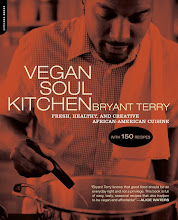 Detroit. Home of Motown, the auto industry, an infamous sexting mayor … and the world’s largest urban farm? If John Hantz has his way, it could be. The Southfield financier recently unveiled plans to transform acres of vacant land and blighted property into a vast model for urban agriculture.
Detroit. Home of Motown, the auto industry, an infamous sexting mayor … and the world’s largest urban farm? If John Hantz has his way, it could be. The Southfield financier recently unveiled plans to transform acres of vacant land and blighted property into a vast model for urban agriculture.“Detroit could be the nation's leading example of urban farming, and become a destination for fresh, local and natural foods, and become a major part of the green movement,” Hantz said in a statement. The first phase of his venture will make use of more than 70 acres of abandoned properties on the city’s lower east side.
According to a recent TIME article, a San Francisco-sized chunk of Detroit lies vacant. Plagued by a 13 percent unemployment rate, dwindling population and foreclosure crisis, Michigan’s largest city is overdue for renewal. Hantz Farms seeks to polish this particular notch on the Rust Belt by “transform[ing] this area into a viable, beautiful and sustainable area that will serve the community, increase the tax base, create jobs and greatly improve the quality of life."
Since mainstream markets and pesticide-free produce have exited the hood, urban agriculture provides folks with access to healthy food and promotes self-reliance. Barren blocks and syringe-strewn lots are morphing into nurseries that not only feed needy families, but teach young and adult workers alike the value of sustainability.
Tha D is already home to several community farms, among them Georgia Street Garden, whose founder, Mark Covington, envisions a plot of fruit and veggies on every block, and Earthworks, a program of the Capuchin Soup Kitchen. The organization Urban Farming began in Detroit in 2005 with three gardens. In 2008, they provided fresh produce for approximately 50,000 people across the nation and abroad.Matt Allen, Senior Vice President of Hantz Farms LLC, envisions a prairie amidst a wasteland of weeds and broken glass. “The combination of land consolidation, blight removal, conservation of city services and the beautification of the city itself are just some of the byproducts that will come from our commitment to urban farming," he says. "We're very excited to be able to make strides in helping to make Detroit a progressive, world-class leader in providing fresh, locally grown food that's safe and purely Detroit."
From Motor City to an agrarian society? The greening of Detroit could become a symbol for other struggling metropolises seeking to make a comeback — of the garden variety. Hope takes root in D-town.



No comments:
Post a Comment